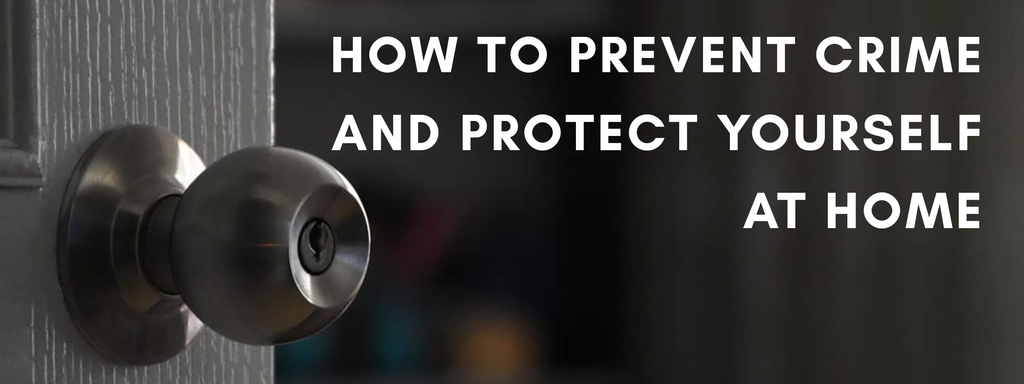You should feel safe and secure in the home you built for yourself. However, with the rise of crime in recent news, it's important to understand how to prepare in case of emergency and how to prevent criminal activity from happening in the first place. Whether you're a homeowner or a renter, implementing effective safety measures can go a long way in preventing crimes and ensuring the security of your home. Here are some essential tips on how to safeguard your home from intruders on and offline:
- Secure All Entry Points: Your doors and windows are the primary points of entry for intruders. Therefore, it's essential to ensure that all entry points are secured. Install sturdy, high-quality locks on all doors and windows and use them consistently, even when you're at home. Consider using deadbolts, smart locks, and security bars for added protection. Additionally, reinforce doors and door frames with longer screws and a heavy-duty strike plate to make them more resistant to forced entry.
- Invest in a Reliable Security System: A reliable security system is a fundamental component of home safety. Consider investing in a comprehensive security system that includes features such as surveillance cameras, motion sensors, door and window sensors, and an alarm system. Make sure to choose a reputable security system provider and have it professionally installed for maximum effectiveness. Display signs and stickers indicating that your home is protected by a security system, as it can act as a deterrent for potential intruders.
- Have an emergency plan: Develop a plan with your family members for emergencies, such as a break-in or fire, and rehearse it regularly.
- Many families report including self-defense products such as guns or body armor into their last-resort, emergency preparedness plan. Should you consider including a plan for your family, please enroll your family in an annual firearm safety course before legally purchasing a firearm and to understand your body armor options, please consult with a Wonder Hoodie representative for additional information.
- Use strong and unique passwords: Set strong and unique passwords for your home security system, Wi-Fi network, and any other smart devices you use at home to prevent unauthorized access. Change the default usernames and passwords on your smart devices, such as smart locks, cameras, and alarms, to prevent unauthorized access. Keep your devices and software updated with the latest security patches to protect against vulnerabilities.
- Be cautious with strangers: Avoid letting strangers into your home without verifying their identity. Avoid opening the door to anyone you don't know or weren't expecting. Always verify the identity of service providers, delivery persons, or salespeople by asking for identification and confirming it with the company they claim to represent. If in doubt, do not open the door and contact the authorities.
- Use Timers for Lights and Electronics: Timers for lights and electronics can create the illusion that someone is home even when you're away, deterring potential burglaries. Set timers to turn on and off lights, televisions, and radios at different times throughout the day to give the impression of activity inside the house. This can be especially useful when you're on vacation or away from home for an extended period.
- Secure your valuables: Keep valuable items, such as cash, jewelry, and important documents, securely locked in a safe or hidden in a discreet location to prevent theft.
- Keep Your Garage Secure: Your garage can be a vulnerable entry point for intruders if not properly secured. Keep your garage door closed and locked at all times, even when you're at home. Consider installing a garage door opener with rolling code technology, which generates a new code each time the door is opened, making it more difficult for criminals to duplicate the code and gain access to your home.
- Be cautious with social media: Avoid sharing your location or your absence from home on social media, as it can alert criminals that your home may be empty.
- Get to know your neighbors: Building a good relationship with your neighbors can create a sense of community and foster mutual support in keeping your neighborhood safe. Start a neighborhood email list or whatsapp group to keep your neighbors informed if you haven’t already and report any suspicious activities or individuals to law enforcement and your neighbors.
It's important to note that crime prevention and home security measures may vary depending on your location, type of residence, and other factors. It's always best to assess your own situation and take appropriate measures to protect yourself and your home. For more information on how you can protect yourself and your loved ones, check out Wonder Hoodie’s safety blog series.
